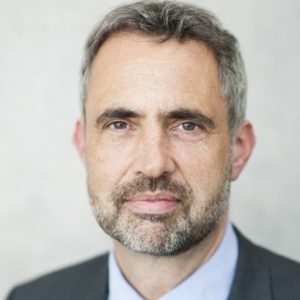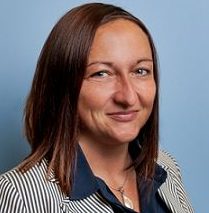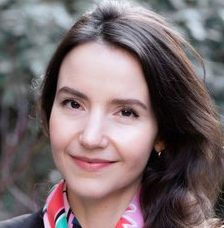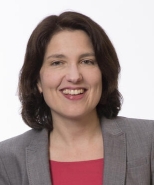For more information, see the About page.
The International Centre for Economic Analysis (ICEA) is a non-profit, non-partisan organization dedicated to the advancement of research in economics and other social sciences. It is an international centre with chapters in Canada, at Wilfrid Laurier University in Waterloo, Ontario; Poland, at the University of Warsaw; Ukraine, at the Kyiv School of Economics; and in Italy, at the University of Sienna.
ICEA organizes conferences, webinars and seminars at which leading economists, policymakers, industry practitioners, students, and other scholars can exchange and develop new insights and ideas.
Widening Horizons of Macroeconomic Research
November 14-15, 2025, Warsaw, Poland
6th Warsaw Money-Macro-Finance Conference
September 17-18, 2024, Warsaw, Poland
The International Centre for Economic Analysis (ICEA) – Warsaw Chapter invites papers to be considered for the 6th Warsaw Money-Macro-Finance Conference at Faculty of Economic Sciences, University of Warsaw, Poland.
We invite papers in all areas of macroeconomics and finance, including monetary and fiscal policies, business cycle analysis, general equilibrium, growth theory, financial analysis and related fields. The main objective of this meeting is to stimulate cooperation of researchers from all over the world. Young economists are particularly encouraged to apply.
 | Keynote speaker: Marcin Kacperczyk Marcin Kacperczyk is a Professor of Finance at the Imperial College London Business School. He is also a Research Fellow at the Centre for Economic Policy and Research. In addition, he is a Managing Editor at the Review of Finance and serves as an Associate Editor of Journal of Financial and Quantitative Analysis. Professor Kacperczyk’s research focuses mostly on climate finance, financial markets, financial intermediation, and asset management. His latest work analyses the effects of climate change on financial markets. He has also written on a broad range of topics such as social norms, short-term debt markets, performance evaluation, labour unions, insider trading, income inequality, and portfolio choice. He has analysed various effects of informed trading in finance. |
5th Warsaw Money-Macro-Finance Conference
September 21-22, 2023, Warsaw, Poland
The International Centre for Economic Analysis (ICEA) – Warsaw Chapter invites papers to be considered for the 5th Warsaw Money-Macro-Finance Conference at Faculty of Economic Sciences, University of Warsaw, Poland.
We invite papers in all areas of macroeconomics and finance, including monetary and fiscal policies, business cycle analysis, general equilibrium, growth theory, financial analysis and related fields. The main objective of this meeting is to stimulate cooperation of researchers from all over the world. Young economists are particularly encouraged to apply.
 | Keynote speaker: Frank Smets (European Central Bank and University of Ghent) Frank Smets is is Adviser to the Counsel to the Executive Board at the European Central Bank and a Professor of economics at University of Ghent. Previously he was Director General Economics, Adviser to the President of the European Central Bank and Director General Research at the ECB. He is a Research Fellow of the Centre for Economic Policy Research in London and CESifo in Munich. He has written and published extensively on monetary, macroeconomic, financial and international issues mostly related to central banking in top academic journals such as the Journal of the European Economic Association, the American Economic Review, the Journal of Political Economy and the Journal of Monetary Economics. He was managing editor of the International Journal of Central Banking from 2008 till 2010. Before joining the European Central Bank in 1998, he was a research economist at the Bank for International Settlements in Basel, Switzerland. He holds a PhD in Economics from Yale University. |
Pandemics, Labour Markets and Inflation
June 30-July 1, 2023, Siena, Italy
The International Centre for Economic Analysis (ICEA) – Warsaw Chapter invites papers to be considered for a conference on Pandemics, Labour Markets and Inflation.
The COVID-19 pandemic had far-reaching effects on labour markets and on inflation. It increased withdrawals from the labour market, and in many countries, the rate of unemployment fell to record lows. The pandemic disorganized international supply chains, increasing costs of production and transportation. These developments, exacerbated by the invasion of Ukraine and its effects on energy and food markets, led to inflation rate reaching the highest levels since 1980s. With even core inflation far exceeding targets, and low unemployment leading to faster wage growth, anti-inflationary policy of central banks is likely to lead several countries into a recession this year.
We invite papers related to the analysis of these developments, lessons learned, policy responses and papers related to the general topic of the conference.
 | Keynote speaker: Laurence M. Ball (Johns Hopkins University, NBER and ICEA) Laurence M. Ball is Professor of Economics at Johns Hopkins University. He is also a Research Associate at the National Bureau of Economic Research, a consultant for the International Monetary Fund and Distinguished Fellow of ICEA. He received the Wim Duisenberg, Olin and Sloan fellowships. He has previously been a Visiting Scholar at a number of central banks, including the Federal Reserve, the Bank of Japan, the Bank of England, and the Reserve Bank of New Zealand. His research topics include unemployment, inflation, and fiscal and monetary policy. He is the author of “The Fed and Lehman Brothers: Setting the Record Straight on a Financial Disaster”, chosen as one of the “Best Economics Books of 2018″ by Financial Times. |
 | Keynote speaker: Stephen G. Cecchetti (Brandeis International Business School, NBER, CEPR and ICEA) Stephen G. Cecchetti is the Rosen Chair in International Finance at the Brandeis International Business School, Vice Chair of the Advisory Scientific Committee of the European Systemic Risk Board, a Research Associate at the NBER and a Research Fellow at the CEPR. From 2008 to 2013, he served as economic adviser and head of the monetary and economic department at the Bank for International Settlements. From 1997–1999 he served as Executive Vice President and Director of Research at the Federal Reserve Bank of New York; and from 1992-2001 he was editor of the Journal of Money, Credit, and Banking. Cecchetti has published widely in academic and policy journals, is the author of a leading textbook in money and banking, and blogs at www.moneyandbanking.com. |
Money Law, Capital and the Changing Identity of the European Union
November 4, 2022, Cripta, San Francesco Building, University of Siena
4th Warsaw Money-Macro-Finance Conference
September 20-21, 2022, Faculty of Economic Sciences, University of Warsaw, Warsaw, Poland
The International Centre for Economic Analysis (ICEA) – Warsaw Chapter invites papers to be considered for the 4th Warsaw Money-Macro-Finance Conference at Faculty of Economic Sciences, University of Warsaw, Poland.
We invite papers in all areas of macroeconomics and finance, including monetary and fiscal policies, business cycle analysis, general equilibrium, growth theory financial analysis and related fields. The main objective of this meeting is to stimulate cooperation of researchers from all over the world. Young economists are particularly encouraged to apply.
 | Keynote speaker: Hélène Rey (London Business School) Hélène Rey is the Lord Bagri Professor of Economics at London Business School and Fellow of the Econometric Society, British Academy, European Economic Association, American Academy of Arts and Sciences, correspondante de l’Académie des Sciences Morales et Politiques, member of the Group of Thirty and foreign honorary member of the American Economic Association. Her research focuses on the determinants and consequences of external trade and financial imbalances, the theory and empirics of financial crises and the organization of the international monetary system. She introduced the concept of Global Financial Cycles and qualified the idea of the Mundellian Trilemma. She is the recipient of Bernácer Prize, the inaugural Birgit Grodal Award of the European Economic Association, Yrjö Jahnsson Award, the Inaugural Carl Menger Preis, Prix Edouard Bonnefous, Maurice Allais Prize and Prix Turgot. |
 | Keynote speaker: Ricardo Reis (London School of Economics) Ricardo Reis is the A.W. Phillips Professor of Economics at the London School of Economics and Fellow of the Econometric Society. His main areas of research are inflation, inflation expectations, unconventional monetary policies and the central bank’s balance sheet, disagreement and inattention, business cycle models with inequality, automatic stabilizers, public debt sustainability, monetary-fiscal interactions, sovereign-bond backed securities, and the role of capital misallocation in the European slump and crisis. He is an academic consultant at the Bank of England, the Riksbank, and the Federal Reserve system and directs the Centre for Macroeconomics in the UK. He is the recipient of Yrjo Jahnsson award, Banque de France / Toulouse School of Economics junior prize, and Bernácer prize. His public service includes writing a weekly column for the Portuguese press and developing European Safe Bonds (ESBies). |
Green Bonds and Environmental Finance Workshop
Pre-conference Workshop of the 27th Annual EAERE conference
Rimini, Italy, June 27, 2022, a hybrid event
ONSITE, at the RIMINI Campus, University of Bologna (ITALY) and ONLINE, organized by the International Centre for Economic Analysis (ICEA)
 | Keynote speaker: Caroline Flammer (Columbia University) Caroline Flammer is a Professor of International and Public Affairs at Columbia University. She is an expert in sustainable investing and the recipient of numerous prestigious awards. Her research examines how, and under which conditions, firms can enhance their competitiveness and long-term profitability while strengthening—instead of undermining—the very system in which they operate and hereby play a critical role in addressing climate change, inequality, global health, and other grand challenges related to society and the natural environment. The Web of Science ranked her among the top-100 Highly Cited Researchers in the economics and business profession in terms of impact over the past 10 years. Among other roles, she serves as the Chair of the Academic Advisory Committee of the United Nations’ Principles for Responsible Investment (PRI), the largest network of responsible investors to date. Moreover, she serves as Associate Editor for both Management Science and the Strategic Management Journal. |
After the Pandemic conference series (online)
The International Centre for Economic Analysis organized a series of virtual conferences under the After the Pandemic theme. Eleven conferences took place between October 29, 2021 and April 29, 2022.
The Covid-19 Pandemic has been a singular event that affected health, economic situation and social cohesion around the world. The conference series was devoted to analyzing various aspects of the pandemic and their long-term consequences. The list of the conferences, programs and keynote speakers follows below.
The Wealth of Nations in the Post-Covid Era Conference
April 28-29, 2022, online
The Covid-19 pandemic exposed how unprepared our societies were to a major shock. The pandemic – induced disruptions are continuing and may lead to long – term scarring of workers and firms. Building a resilient society necessitates rethinking and redesign of financial markets, fiscal and monetary policy, management of high government debt, regulation, information management, global trade and finance, and climate change. Analysis of these challenges and how to deal with them will be the focus of the conference.
 | Keynote speaker: Philippe Aghion (College de France and London School of Economics) Philippe Aghion is Professor at the College de France and at the London School of Economics, and a fellow of the Econometric Society and of the American Academy of Arts and Sciences. His research focuses on the economics of growth. With Peter Howitt, he pioneered the so-called Schumpeterian Growth paradigm which was subsequently used to analyze the design of growth policies and the role of the state in the growth process. Much of this work is summarized in their joint book Endogenous Growth Theory (MIT Press, 1998) and The Economics of Growth (MIT Press, 2009). In 2001, he received the Yrjo Jahnsson Award of the best European economist under age 45. In 2009 he received the John Von Neumann Award, and in March 2020 he shared the BBVA “Frontier of Knowledge Award” with Peter Howitt for “developing an economic growth theory based on the innovation that emerges from the process of creative destruction. |
The Resilient Society Conference
March 3-4, 2022, online
The Covid-19 pandemic exposed how unprepared our societies were to a major shock. The pandemic – induced disruptions are continuing and may lead to long – term scarring of workers and firms. Building a resilient society necessitates rethinking and redesign of financial markets, fiscal and monetary policy, management of high government debt, regulation, information management, global trade and finance, and climate change. Analysis of these challenges and how to deal with them will be the focus of the conference.
 | Keynote speaker: Markus Brunnermeier (Princeton University, NBER, CEPR and CESifo) Markus Brunnermeier is Edwards S. Sanford Professor and director of Princeton’s Bendheim Center for Finance. He is nonresident senior fellow at the Peterson Institute, a research associate at the NBER, CEPR, CESifo, the Luohan Academy, ABFER, a member of the Bellagio Group, Fellow of the Econometric Society and the recipient of the Bernácer Prize granted for outstanding contributions in the fields of macroeconomics and finance. His research focuses on international financial markets and the macroeconomy with special emphasis on bubbles, liquidity, financial and monetary price stability, and digital money. His recent book “The Resilient Society” won the Prize for the 2021 best business book in German and was listed among best economics books by the Financial Times. |
Future of Work Conference
February 24-25, 2022, online
The effect of technological progress on labour markets is the focus of this conference. Even before the pandemic, there were worries that widespread progress in automation, robotics and AI will displace labour and lead to persistent unemployment. The pandemic underscored the fragility of the labour force and may accelerate that trend. Where will new jobs come from; what kind of jobs and tasks will be replaced; what innovation characteristics and types will lead to new jobs and what sectors will flourish and which will shrink are some of the questions to be addressed.
 | Keynote speaker: David Autor (Massachusetts Institute of Technology, NBER and IZA) David Autor is Ford Professor of Economics and Margaret MacVicar Faculty Fellow, MIT. Vice President, American Economic Association, Co-Director, NBER Labor Studies Program. He is ranked fourth in the world in economics in the last 10 years by RePEc. Fellow of the American Academy of Arts and Sciences, Econometric Society and Society of Labor Economists. Former Co-Director, MIT Task Force on the Work of the Future. Member, U.S. Congressional Budget Office, Board of Economic Advisors. Recipient of Society for Progress Medal, INSEAD; John Heinz Award, 25th Anniversary Special Recognition; Andrew Carnegie Fellowship. His new book, just published, is The Work of the Future: Building Better Jobs in an Age of Intelligent Machines (Cambridge: MIT Press), joint with David A. Mindell and Elisabeth Reynolds, with foreword by Robert Solow. It is based on the findings of the multiyear MIT Task Force on the Work of the Future. |
Taxation and Innovation Conference
February 3-4, 2022, online
The large debt accumulation during the pandemic creates pressure on future taxation policies. The conference will focus on the macro and micro effects of taxation of individuals and corporations, in particular the effect on innovation activity, productivity, growth, as well as on inequality and intergenerational and social mobility.
 | Keynote speaker: Stefanie Stantcheva (Harvard University, NBER and CEPR) Stefanie Stantcheva is Professor of Economics at Harvard University, Fellow of the American Economy of Arts and Sciences and the Econometric Society, Research Associate, NBER and Faculty Research Fellow, CEPR. Co-editor of the Quarterly Review of Economics. Recipient of the Elaine Bennett Research Prize, Best French Young Economist, Carnegie and Sloan Fellowships and NSF CAREER Award. In 2018, she was selected by The Economist as one of the 8 best young economists of the decade. She made important contributions to the study of taxation and its effects on innovation. Founder of the Social Economics Lab, where she studies how people reason and form attitudes about public policy. |
Inflation Conference
January 27-28, 2022, online
Since the beginning of 2021, in many countries the inflation rate has been increasing to the highest level in 30 years, fueled by supply-chain problems and raising energy prices. The main issue is whether the rapid price rise is temporary and will pass once the supply-chain problems subside, or whether it will become a long-term problem. Inflation concerns, and the role of inflationary expectations, will be the focus of the conference.
 | Keynote speaker: Laurence M. Ball (Johns Hopkins University and NBER) Laurence M. Ball is Professor of Economics at Johns Hopkins University, a Research Associate at the National Bureau of Economic Research and a consultant for the International Monetary Fund. He is a recipient of the Wim Duisenberg, Olin and Sloan fellowships. He has previously been a Visiting Scholar at a number of central banks, including the Federal Reserve, the Bank of Japan, the Bank of England, and the Reserve Bank of New Zealand. His research topics include unemployment, inflation, and fiscal and monetary policy, and he is the author of The Fed and Lehman Brothers: Setting the Record Straight on a Financial Disaster, chosen as one of the “Best Economics Books of 2018″ by Financial Times. |
 | Keynote speaker: Yuriy Gorodnichenko (University of California, Berkeley, NBER, CEPR and IZA) Yuriy Gorodnichenko is Quantedge Presidential Professor of Economics at the University of California, Berkeley, Faculty Research Associate, NBER, Research Fellow, CEPR and IZA and Fellow of the Econometric Society. Ranked by RePEc 8th in the world in the last 10 years, first in his cohort (2007) and, since 2018, first among economists within 15 years of graduation. Recipient of Sloan Research Fellowship and NSF CAREER Award. Editor, Journal of Monetary Economics and Visnyk of the National Bank of Ukraine, Recipient of numerous teaching, research and refereeing awards. He made numerous important contributions to macroeconomics, most recently to the analysis of the formation of inflationary expectations. |
Gender Inequality Conference
December 9-10, 2021, online
Gender inequality has increased during the COVID-19 pandemic. The effect on female employment was greater because the lockdowns impacted sectors in which a large portion of women work, such as the service sector. Moreover, school closures made it impossible for many women to keep working because of their central role in childcare. The conference will be devoted to the analysis of the potential persistence of these changes and their consequences for gender inequality.
 | Keynote speaker: Stefania Albanesi (University of Pittsburgh, NBER and CEPR) Stefania Albanesi is Professor of Economics, Research Associate at the National Bureau of Economic Research and fellow at the Centre for Economic Policy Research. Professor Albanesi’s research interests are in macroeconomics, public economics, and labor economics. Her current research concentrates on understanding the determinants of household borrowing and default behaviour, and on quantifying the impact of changing trends in female participation on aggregate business cycles |
Public Health Conference
December 3 2021, online
The COVID-19 pandemic brought public health into the limelight as never before. It affected health outcomes directly as well as indirectly, by straining health systems. The conference will examine the consequences of pandemic – induced health changes for individuals, challenges of coordinating public health efforts among the various national and international organizations during a global pandemic, and how to prepare for the next one.
 | Keynote speaker: Alan Whiteside (Wilfrid Laurier University and Balsillie School of International Affairs) Alan Whiteside is Chair of Global Health Policy and Professor at Wilfrid Laurier University’s School of International Policy and Governance and at the BSIA and Professor Emeritus at the University of KwaZulu-Natal. OBE. Established (1998) the Health Economics and HIV/AIDS Research Division at the University of KwaZulu-Natal, where he was the executive director. Founder (1990) and editor (till 2002) of the AIDS Analysis Africa newsletter. Elected member of the governing council of the International AIDS Society (2000 to 2012). |
Working from Home Conference
November 17-18, 2021, online
The trend of working from home was accelerated by the COVID-19 pandemic, made possible by the advancement in telecommunication technology over the last 30 years. In an effort to keep the virus from spreading, large corporations such as Apple and Google mandated that employees work from home far beyond what was required by governments. There is evidence that working from home will stick and that work patterns have been permanently affected. The conference will explore the ramifications of these changes on the office/home work balance and their impact on the location of workers.
 | Keynote speaker: Nicholas Bloom (Stanford University and NBER). Nicholas Bloom is William D. Eberle Professor of Economics. Ranked second in the world in economics in the last 10 years by RePEc. Fellow of the American Academy of Arts and Sciences and of the Econometric Society and the recipient of the Sloan Fellowship, the Bernacer Prize (awarded annually to a European economist under the age of 40), the Frisch Medal and a National Science Foundation Career Award. Senior Fellow of SIEPR, and the Co-Director of the Productivity, Innovation and Entrepreneurship program at the National Bureau of Economic Research. |
Public Policy Lessons Conference
November 12-13, 2021, online
Public policy faced serious challenges during the pandemic. The conference will analyze effectiveness of public policy measures and lessons for designing better policies to meet the public health challenges in the post-pandemic era. The policy measures include improving the measurement of economic costs and benefits of various public health approaches, designing effective vaccination campaigns, optimizing lockdown policies, developing consistent communication and countering disinformation.
 | Keynote speaker: Judith A. Chevalier (Yale University School of Management and NBER). Judith Chevalier is William S. Beinecke Professor of Economics and Finance. Elected Fellow of the American Academy of Arts and Sciences (2003) and Econometric Society (2006). Recipient, first annual Elaine Bennett Research Prize, Committee on the Status of Women in the Economics Profession. This prize is intended to recognize research by a young woman in any area of economics (1999). Alfred P. Sloan Foundation, Sloan Research Fellow. Smith Breeden “Distinguished Paper” prize, Journal of Finance, 1995 |
Inequality Conference
November 5-6, 2021, online
The increase in income and wealth inequality during the pandemic has been widely reported. Some explanations involve the effect of lockdowns on the employment of low-paid workers, and the impact of low interest rates and high savings on property and stock market boom. The conference will analyze why income and wealth inequality has increased within nations and among nations, and whether, and which, of these changes may become permanent.
 | Keynote speaker: Wojciech Kopczuk (Columia University). Wojciech Kopczuk is Professor of Economics and of International and Public Affairs and the Editor-in-chief, Journal of Public Economics. President of the International Institute of Public Finance, 2021-2024, Vice President 2017-2020, National Tax Association Board of Directors, 2012-2015. Alfred P. Sloan Foundation, Sloan Research Fellow 2005-2007. Co-organizer of the HELP! (HEaLth and Pandemics) Econ Working Group seminar series. National Tax Journal Referee-of-the-Year Award, 2005; The Peggy and Richard Musgrave Prize “awarded to the best paper at the 59th International Institute of Public Finance Congress by author under age 40”, 2003. |
Happiness and Age Conference
October 29-30, 2021, online
Intuitively, during a pandemic the perceived well-being should decline. That turns out not to be the case. Reported happiness is about as high now as it was before the pandemic. But the age distribution has changed. Older people are happier than before, while younger people less so. The conference will focus on the effects, both contemporaneous and long-term, of the pandemic on well-being, mental health and related issues.
 | Keynote speaker: David Blanchflower (Dartmouth College). David Blanchflower (CBE) is Bruce V. Rauner Professor of Economics. He has received honorary degrees from the University of Leicester, Queen Mary (London), Sussex and Cardiff. He was the Business Person of the Year (Daily Telegraph, 2008). Member Monetary Policy Committee, Bank of England (2006-9). He received Princeton University’s Richard A. Lester Prize for ‘the most outstanding book in Industrial Relations and Labor Economics. He is the author of 3rd most Google cited paper in both the Journal of Labor Economics and the Journal of Public Economics and the second most cited paper ever in Labour Economics. |